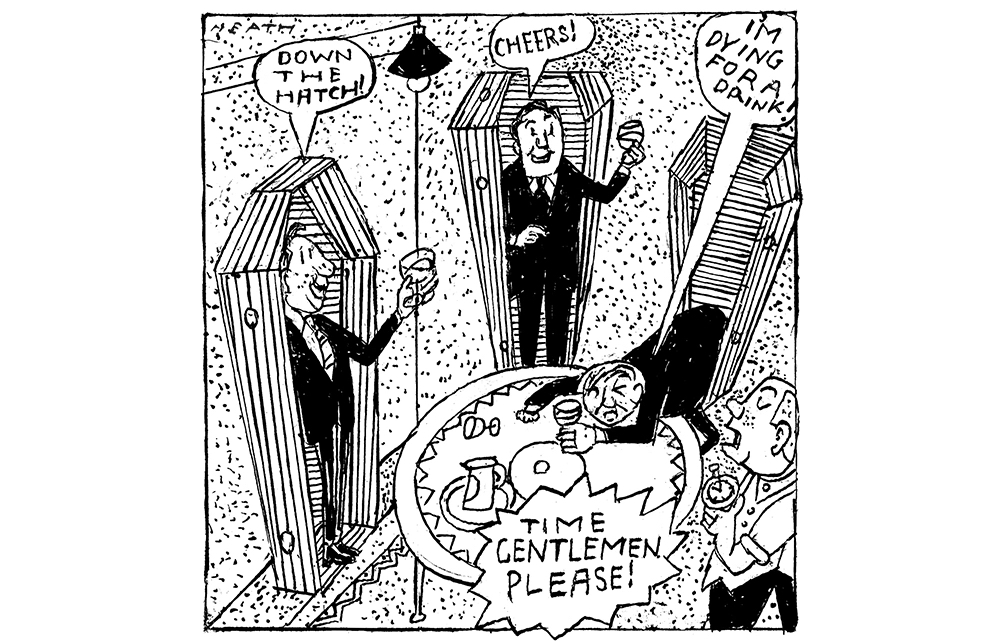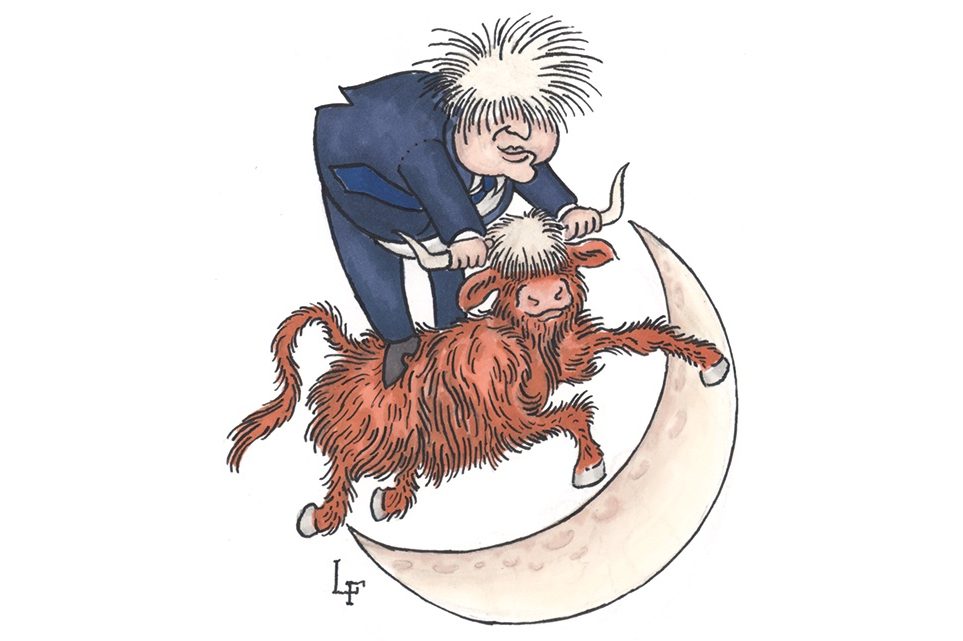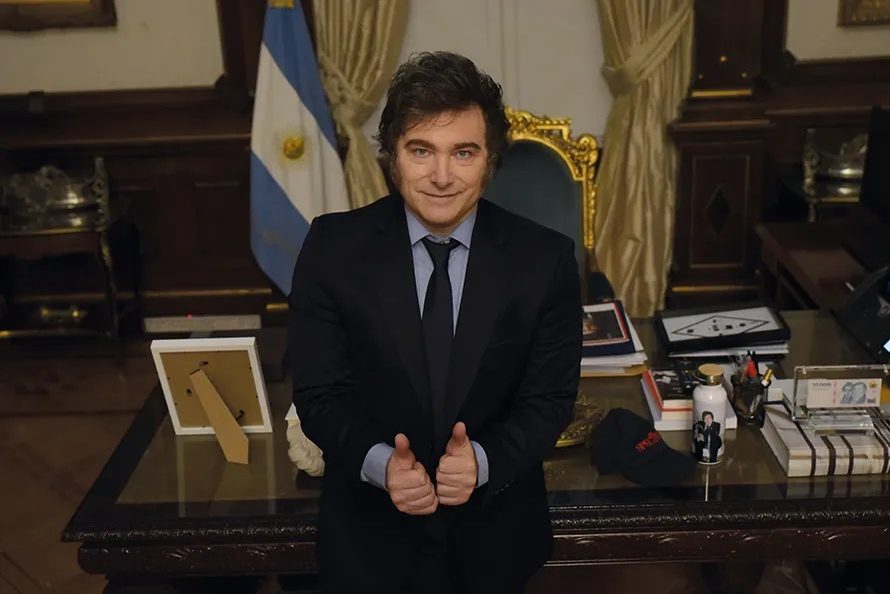I have inadvertently built my own coffin. I’m rather pleased with it. It wasn’t meant to be a coffin. It’s actually a boat. My son found a YouTube video on how to make one, and although these videos are normally created by practical men for other practical men (I am the world’s most impractical man), I watched it and thought: “Even I could do that.” It’s essentially an open-top plywood box, eight feet by two feet by one foot, with a 45-degree angle at the front to make it look slightly less like a box.
Needless to say, my son got bored after the third nail, but I soldiered on and, seven bathrooms’ worth of sealant later, I was the proud owner of a punt. As I pushed off from the riverbank on the vessel’s maiden voyage, my partner seemed shocked that, yes, it was in fact floating.
As I meandered past, this time lying down, she said: “It looks like you’re in a coffin.” That’s when it struck me: why not? Why shouldn’t this object double up, whenever the day comes, as my final home? It’s the only thing I’ve managed to build, and I’m proud of it. So I’ve decided: in my will there will be money set aside for another piece of plywood to act as a lid, plus a few nails.
Whoever is organizing my funeral is going to be left in no doubt that spending three grand on a mahogany coffin with brass handles is not an option. The modern undertaking industry is a massive con. The way they use guilt and embarrassment is shameless, nudging you towards ‘superior’ coffins and ‘premium’ hearses as if without that vast expense your grief isn’t sincere.
Not that your money gets you very much. In his brilliant book What Remains?, the undertaker Rupert Callender reveals that the handles on many veneered chipboard coffins would simply rip off if you tried to use them to lift the coffin — that’s why conventional undertakers use pallbearers to carry the thing on their shoulders. Callender’s handles are deliberately made to be strong enough to take the weight, and he always encourages relatives to use them. Carrying your loved one “is the last thing you can do for the person you are burying. Why would you allow this to be done by someone else?”
Indeed the six handles are so strong that the middle ones are less important, meaning children can take part if they want. “We have even had some very small children actually hanging off the handles going ‘Wheeeeee!’ as they swing from their father’s coffin.”
My brother attended a funeral where the mourners, having met at a pub, all clinked their pint glasses against the coffin before walking behind it to the nearby graveyard.
Some will find this disrespectful. I think it’s wonderful, a rare departure from society’s refusal to be relaxed about death, to be honest about the simple fact that one day you will die. Hardly anyone talks freely about it, despite it being the only thing that’s certain in life. (As David Hockney says: “The cause of death is birth.”) Instead, people resort to condolence-card euphemisms — “passing on,” “no longer with us” and the like. Boris Johnson fell back on such mealy-mouthed phrases at his Covid briefings: “families are going to lose loved ones” and so on. It’s because we refuse to admit that humans are mortal that the response to the pandemic grew so grotesquely out of control.
Dylan Thomas urged us to “rage, rage against the dying of the light.” But that means dying angry, and refusing to come to terms with the death you must know is inevitable. Much better to accept the inevitable — it’ll let you get on with your life more happily. Learning how to live is learning how to die.
My boat/coffin is propped up behind the garden shed, its top eighteen inches peeping over the roof as a reminder it’s still there. I see it as my equivalent of the slave whose job it was to follow victorious Roman generals on the day of their triumph, whispering: “Remember you are mortal.” It also reminds me of Nelson, who for a while kept his own coffin propped up in his cabin, behind the seat in which he ate dinner. It had been presented to him by a friend after Nelson’s victory at the Battle of the Nile, made out of wood taken from a captured French ship.
Another group who were death-aware were the missionaries who traveled to South America in the late eighteenth century. They would pack their worldly possessions in coffins, rather than suitcases, so certain were they that they would not be returning.
But you don’t have to be religious to embrace the philosophy. Whether you see death simply as the end, or as a new beginning, it’s going to happen. Either way, it’s time you started thinking outside the box.
This article was originally published in The Spectator’s UK magazine. Subscribe to the World edition here.

























